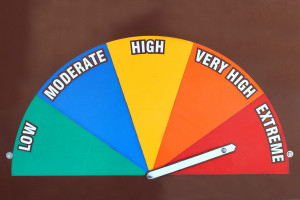Soon you will be able to click to a long article on this website which will explain many of the details of pulmonary hypertension. These details will include symptoms, causes, and treatments. This blog briefly and simply introduces you to the condition. It is not as highly publicized as many other respiratory conditions like lung cancer and COPD.
Yet, as you will see, it goes hand in hand with those diseases. In this short article, we also hope to advocate a lifestyle which will minimize your risks for this disease.
However, here in Orlando, our FLASS physicians are noticing an increasing public interest in pulmonary hypertension.
A Quick Look at Pulmonary Hypertension
We begin this topic with a brief definition. PH or pulmonary hypertension is a condition in which the arteries from the heart to the lungs become very narrow. The heart has to work harder to push blood through the narrowed blood vessels.
To put it simply, this causes the pulmonary blood pressure to rise above the levels that are normal body readings for the patient. The condition enlarges the heart and invites congestive heart failure.
Your health care guardians at Florida Lung, Asthma and Sleep Specialist don’t want you to spend your days fighting shortness of breath or worse, coughing up blood. We cherish the lives of our patients.
PH Symptoms Play Havoc with Normal Day to Day Life

Danger: Certain Choices in Life Put You At High Risk for Pulmonary Hypertension.
Patients may suffer from shortness of breath, chest pain and palpitations. Sometimes they experience dizziness and fainting. Feeling fatigue, and coughing up blood are also symptoms.
Once doctors make a diagnosis, treatment options may include medicines, oxygen therapy, and sometimes surgery. Check out the risk areas below. Are you in a high-risk group?
Risks We Cannot Avoid and Risks We Can Change
We cannot change some of the risks for this condition, but we can modify some of them with choices we make in our behavior.
Genetics: You just cannot avoid your genetic inheritance. This disease is a good example of the reason you need to know your family medical history. Be aware that if members of your family have the gene for this condition, you are likely to inherit it.
Gender Matters:
Did you know that pulmonary hypertension strikes twice as women as men? Sadly, it often attacks young women of childbearing age.
High Altitude Pushes Your Risk Level:
If you have been living in John Denver’s “Rocky Mountain High” area for years, you might have to consider moving down to earth. Studies prove that high altitude living can predispose your respiratory system to pulmonary hypertension.
Are You Already Sick?
Another risk group includes people who are already suffering from other diseases. This hardly seems fair, but it is statistically proven. Diseases encourage pulmonary hypertension almost symptomatically. For example, you are in danger of belonging to the PH high-risk club if you already endure congenital heart disease or lung disease. You might develop PH if you have liver disease, scleroderma or lupus.

Danger: Reduce Your Risks of Pulmonary Hypertension.
Diseases encourage pulmonary hypertension almost symptomatically. For example, you are in danger of belonging to the PH high-risk club if you already endure congenital heart disease, lung disease. You might develop PH if you have liver disease, scleroderma or lupus.
Have You Been Taking Some Serious Diet Drugs?
PH is only one of the risky conditions that threaten you if you are taking methamphetamines. A few years ago the diet drug “fen phen,” was outlawed for causing this condition. We must remind you that losing your extra weight is hardly worth losing your life.
Pregnancy Protocols:
That brings us directly to another risk group: pregnant women. Caution, if you already have a diagnosis of PH, and add pregnancy, your risk goes higher into the red zone. In fact, the connection between hormones and this condition is so strong that scientists advise you to use other birth control methods.
Obesity and Obstructive Sleep Apnea:
So, if you have packed on a few extra pounds, that might not be an issue. But, if your obesity has led to obstructive sleep apnea, you might consider a healthier eating style. With apnea, your oxygen level falls while you sleep. This condition just invites pulmonary hypertension, and a few other dangerous bedfellows, like congestive heart disease into your body.
In next week’s blog article, we will present you with some life-changing suggestions by making small changes in your lifestyle. The Florida Lung, Asthma and Sleep Specialists know how to lower your risk for getting or worsening symptoms of pulmonary hypertension.






